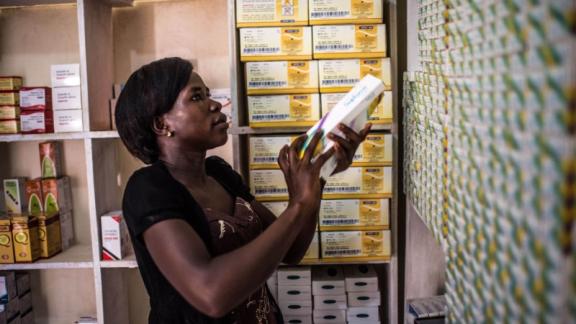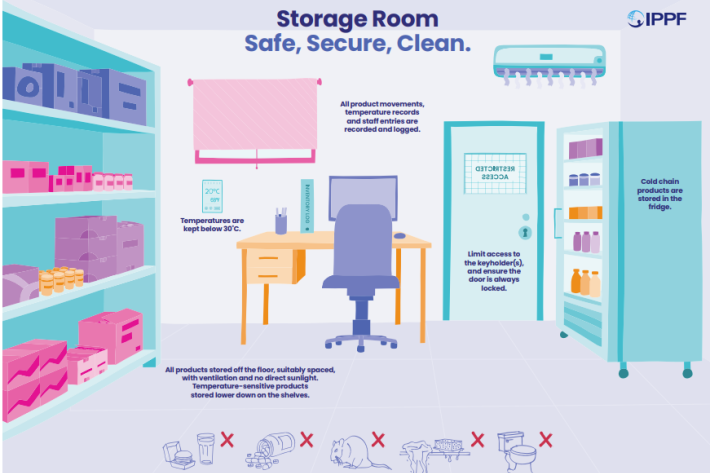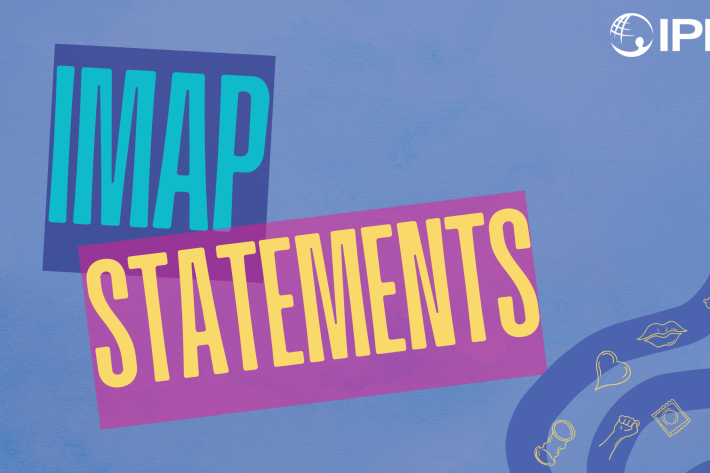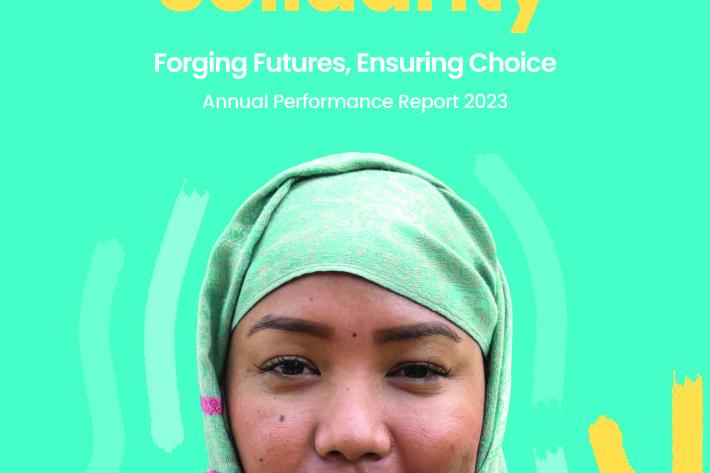Spotlight
A selection of resources from across the Federation
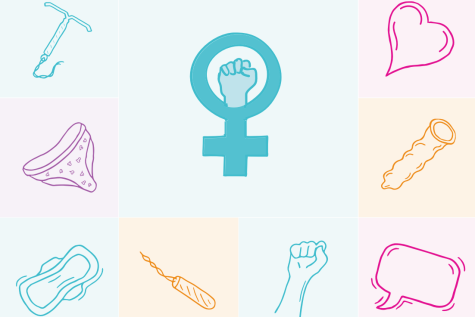
Technical Brief: Designing and Delivering Inclusive, Rights-Based Sexual and Reproductive Healthcare to Transgender and Gender Diverse People
This technical brief outlines key recommendations across several sexual and reproductive health service areas to promote access to inclusive care for transgender and gender diverse people.
Filter our resources by:

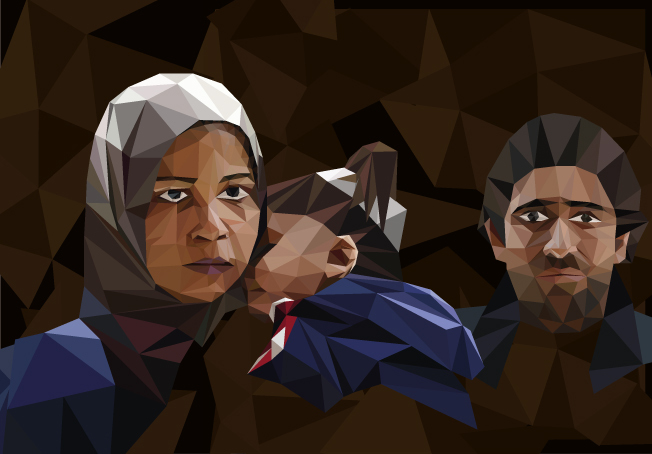
| 18 June 2020
Forced to flee from home... What would you do?
Forced to flee from home... What would you do?People are being forced from their homes more than ever. Whether they are fleeing conflict or lose their homes to natural disasters, there are an estimated 70.8 million refugees worldwide. Women & girls are often most at risk – the threat of sexual and gender-based violence increases as does the risk of trafficking, and basic healthcare can get overlooked. We want to know: what would you do under these circumstances? Life has always been largely peaceful in your country until one day civil war suddenly breaks out and you and your family are forced to flee home.Once you cross the border and are settled into a refugee camp, your husband refuses to use contraception and your injectable is only effective for 12 weeks.You are worried you’ll get pregnant again, something you do not want to happen whilst you are in the refugee camp with limited access to healthcare, and whilst your family is already struggling to survive.You decide to:Your name is Fatima, and you are a 29-year-old high school teacher. You are married with two young children – a daughter aged four, and a son, two. After a few months in the camp you realise you are pregnant. Abortion is legal in your host country, but as a refugee you are unsure of your rights and the closest hospital is over 60km away.You hear about abortion pills from other women in the camp that are available through local mobile clinics.You decide to:You seek advice on the methods of contraception available to you from the local outreach worker. You decide on a long-acting contraceptive method called Jadelle, an implant.As you are worried that your husband will find out, the outreach worker advises you to bring him along to a group session on contraception.You decide to:You are able to receive medical abortion pills through a nurse practitioner at the local clinic, who explains you the safe way to take the pills at home. She also provides you with contraception counselling and options for the future. At the local district hospital, medical practitioners are under the misbelief it is not possible to provide surgical abortions to refugees, whilst others refuse to provide abortions on moral grounds, therefore forcing you through an unintended pregnancy. You and your husband attend the family planning session with other couples from the camp. Your husband is convinced of the importance of contraception and you both agree that the Jadelle and condoms are the best options for you to avoid an unintended pregnancy.You now have up to five years of protection against unintended pregnancy. However, you are still worried about the risk of STI and HIV transmission but are unable to talk about contraception to your husband.
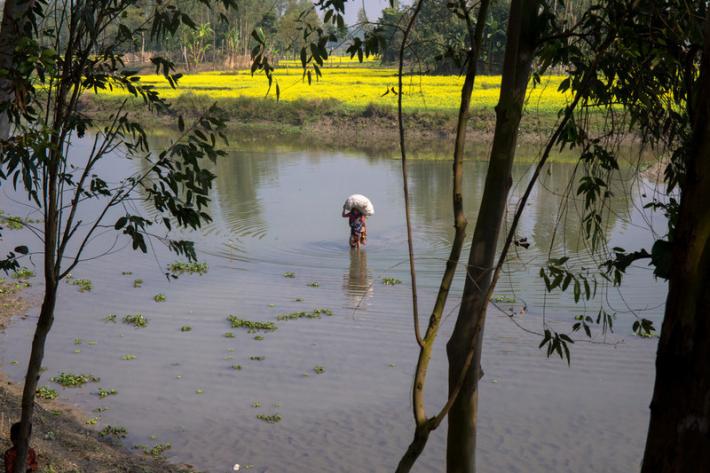
| 03 April 2019
Improving the quality and availability of post-abortion care in a humanitarian crisis
The world is facing stronger and longer natural disasters, protracted complex emergencies, conflicts and epidemics. These humanitarian crises can expose weakness in health systems, with particularly serious consequences for women and girls in need of reproductive health care. To improve the quality and availability of post‑abortion care during a flood, the University of Leicester and International Planned Parenthood Federation South Asia Region (IPPF-SAR), in collaboration with the Government of Bangladesh, developed and measured the impact of an integrated intervention package, called RHCC. First tested in a flood-prone area of Bangladesh, this novel approach includes: i) Pre-positioning medicines and supplies, using the UNFPA’s Inter-Agency Reproductive Health Kit 8; ii) Capacity building of service providers; and iii) Community awareness raising. Supported by IPPF's Innovation Programme, the project aligns with IPPF’s commitment to ensuring that crisis-affected populations receive timely, quality, life-saving, gender-responsive and inclusive sexual and reproductive health services.
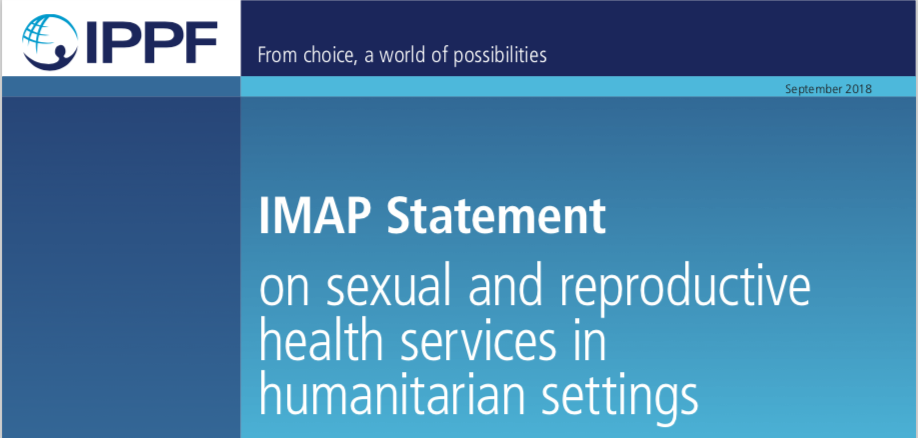
| 17 September 2018
IMAP statement on sexual and reproductive health in Humanitarian settings
Today, unprecedented numbers of people are living in a state of crisis or emergency. In 2018, it is estimated that 135.7 million people are in need of humanitarian assistance, with conflict and natural disasters predicted to be the biggest drivers. Of those in need, approximately one-quarter is estimated to be women and girls of reproductive age (aged 15–49) and approximately 5 million will be pregnant. Globally, 60% of preventable maternal deaths take place in settings of conflict, fragility, displacement and natural disasters.
| 19 June 2018
Humanitarian Strategy
IPPF’s Strategic Framework (SF) 2016-2022 commits the organisation to lead a locally-owned globally connected movement that provides and enables services, and champions sexual and reproductive health and rights (SRHR) for all. Increasing numbers of people face crises or live in chronically insecure settings. In recent years we have scaled up the number of sexual and reproductive health services and information provided to people in emergencies from 1.3m in 2013 to 3.2m in 2016, but we can do much more. The goal of this strategy is to improve access to life-saving SRHR for crisis-affected people in all their diversity. As the situation normalises after a crisis, we aim to leave behind stronger MAs sustaining quality services to diverse populations. IPPF’s model for SRHR in crisis connects the key elements of humanitarian action (prevention and preparedness, response, recovery and resilience) with long-term, equitable development.
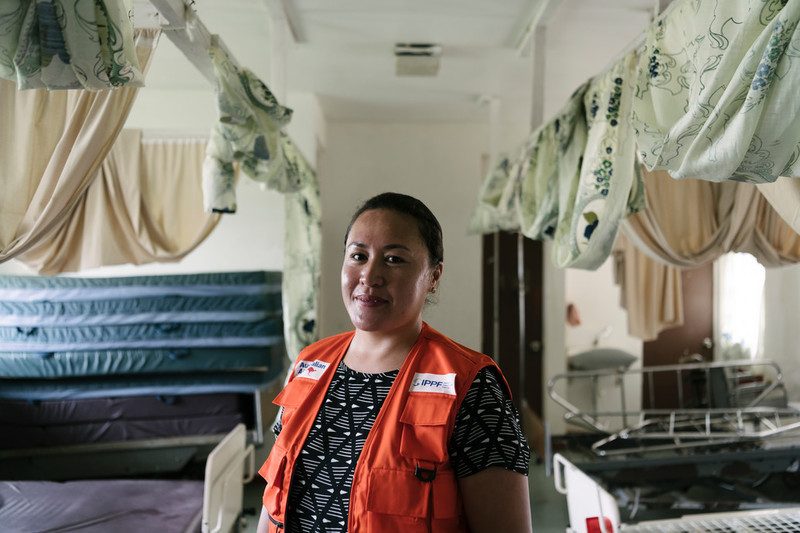
| 24 April 2018
Humanitarian disaster in Tonga brings opportunity through access to healthcare
Following the devastation wrecked by Tropical Cyclone Gita on the island of Kingdon of Tonga, the Tonga Family Health Association deployed an emergency response team. The team was able to bring vital sexual and reproductive health care to local communities. By taking services to the people, the team has been able to expand the types of care that many women would not readily access including pap smears and the opportunity to raise awareness around gender-based violence. Combining service delivery, as well as information, is part of our tailored approach to humanitarian crises; ensuring we meet need, wherever it is, whoever requires it, for as long as they want it. Photography © IPPF/Alana Holmberg
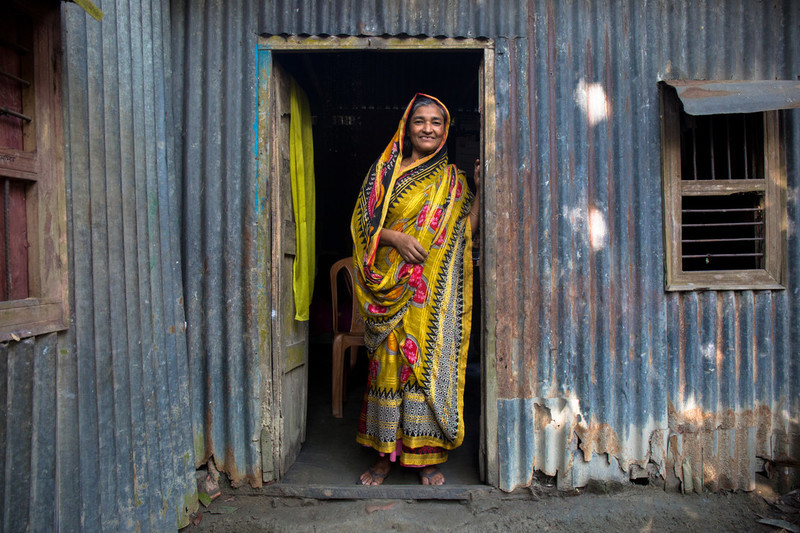
| 08 February 2018
Small scale innovation in Bangladesh during times of crisis: ensuring reproductive care to local communities
In times of humanitarian crises and disasters, the inability to access health care during floods can have serious repercussions on the local community. As part of their Innovation Programme project, our South Asia office in collaboration with the University of Leicester and the Government of Bangladesh provides reproductive health kits to health centres located in areas most prone to seasonal flooding. Known as 'Kit 8' it contains three months’ worth of medicine and equipment for the management of miscarriage and complications of abortion and menstrual regulation in emergency situations, essential to minimize associated morbidity and mortality. Medical staff are trained to administer procedures and provide post-procedure care. While abortion is considered illegal in Bangladesh, menstrual regulation, which has been a part of the country’s family planning program since 1979, is allowed up to 10–12 weeks after a woman’s last menstrual period. Photography © IPPF/Victoria Milko
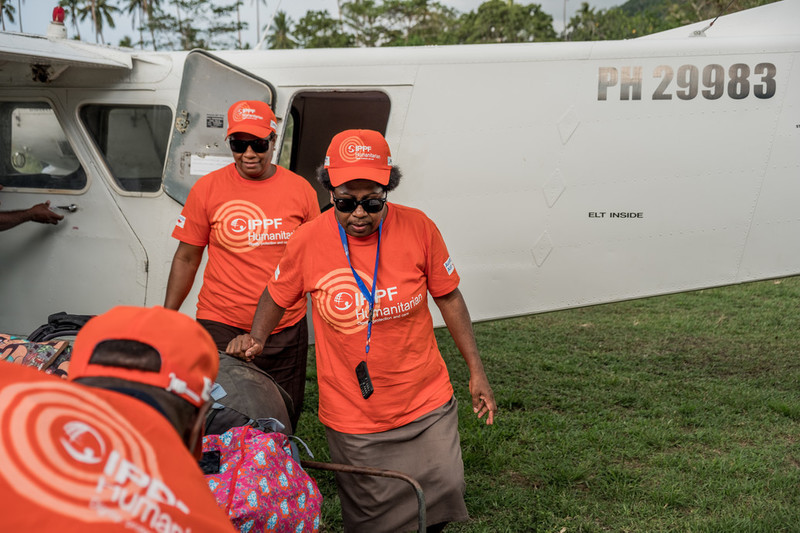
| 19 December 2017
Humanitarian response team ensures safe delivery of emergency supplies following volcanic eruptions, Vanuatu
Toxic fumes due to seismic activity in Manaro Voui volcano, Vanuatu, forced the entire island population to be evacuated. Once the threat level was decreased and the population returned, the Vanuatu Family Health Association, through the International Planned Parenthood Federation, commenced a humanitarian response with mobile health clinics and awareness sessions. The services available through the clinics included pregnancy and delivery support, contraceptives such as condoms, injectables, implants and emergency contraceptives, and screening and management of sexually transmitted infections. Photography © IPPF/Kathleen Prior Read more
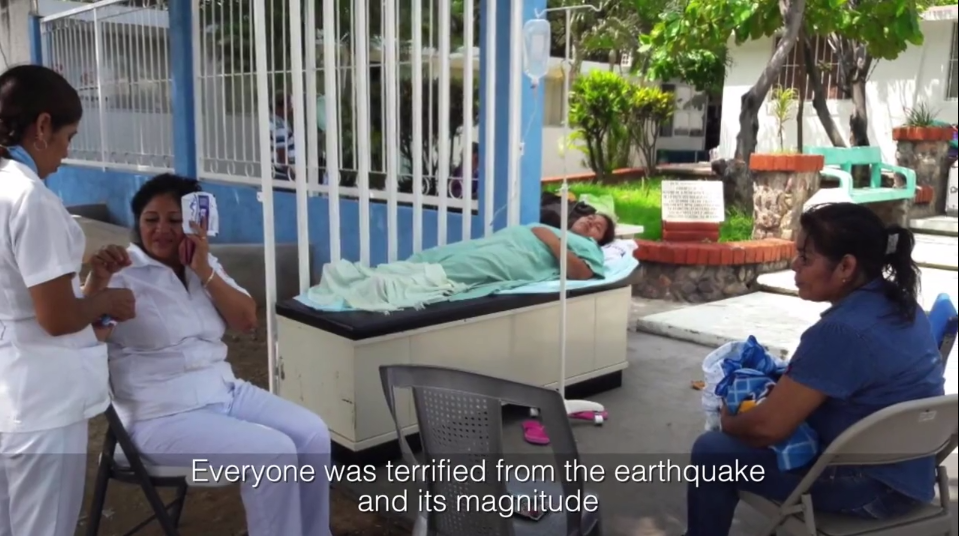
| 14 December 2017
Resilience
Mexfam, IPPF member association in Mexico, continued to provide free healthcare during and after the record-breaking earthquakes in September 2017, despite many members of staff losing their homes and even family members. This is what resilience looks like and we thank those that continue to provide people with vital sexual and reproductive healthcare.
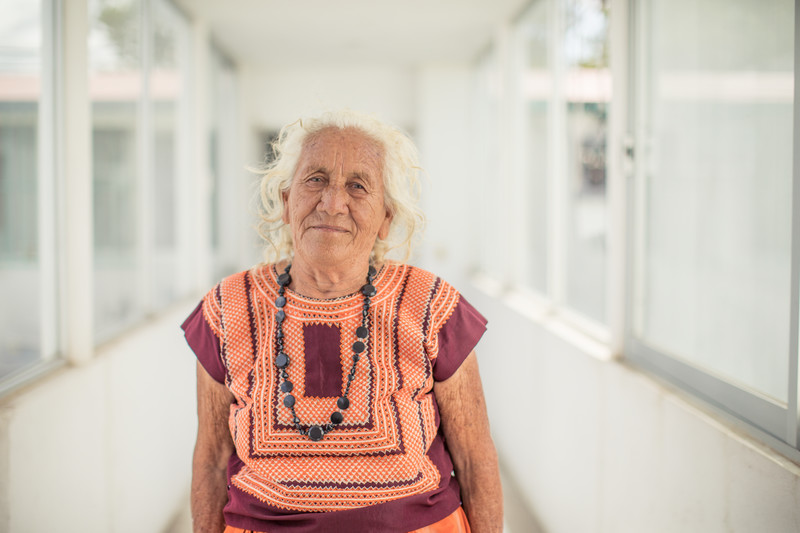
| 13 December 2017
Resilience and commitment in the aftermath of Mexico's devastating earthquakes
In September 2017, Mexico suffered from a devastating magnitude 7.1 earthquake that left hundreds dead and injured, while crushing buildings and destroying infrastructure. We immediately activated our humanitarian response network which assessed damage, deployed personnel, and made sure our mobile clinics were able to operate and reach local communities with vital healthcare and services. Mexfam, an IPPF member association in Mexico, continued to provide free healthcare during and after the record-breaking earthquakes, despite many members of staff losing their homes and even family members. This is what resilience looks like and we thank those that continue to provide people with vital sexual and reproductive healthcare. Photography © IPPF/Brenda Islas Photos: © IPPF/Brenda Islas
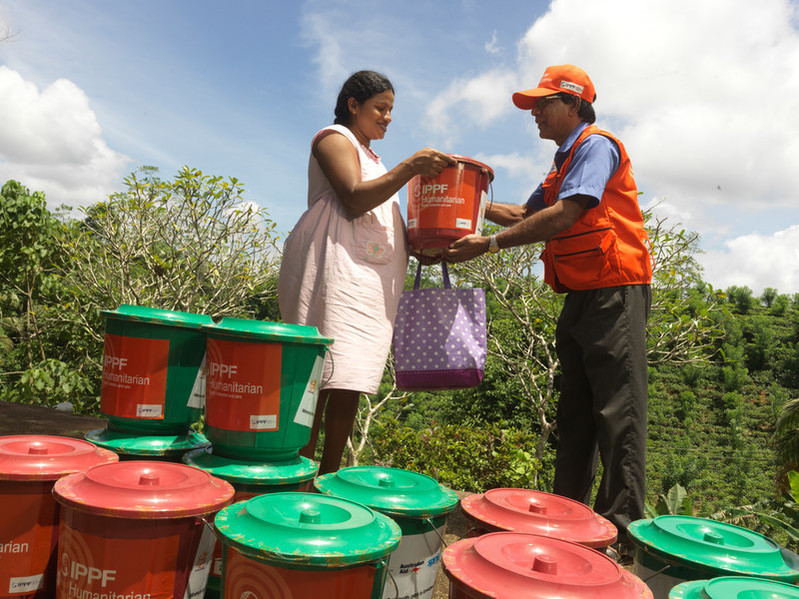
| 23 August 2017
Over 1,000 dignity kits distributed after flash floods in Sri Lanka
Incessant rains across Sri Lanka during May 2017 affected over half a million people in seven districts. Most affected was the Ratnapura district where over 20,000 people faced flash floods, and where 46 deaths were reported. IPPF Humanitarian, in partnership with FPA Sri Lanka, responded to this catastrophe through the distribution of over 1,000 dignity kits in Ratnapura. Stories Read more stories about our humanitarian work in Sri Lanka during the floods







